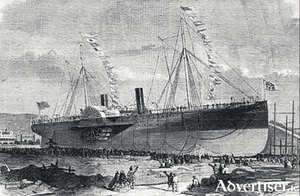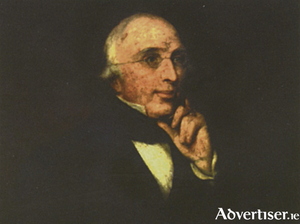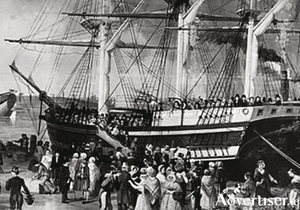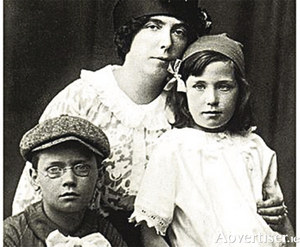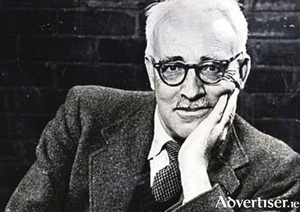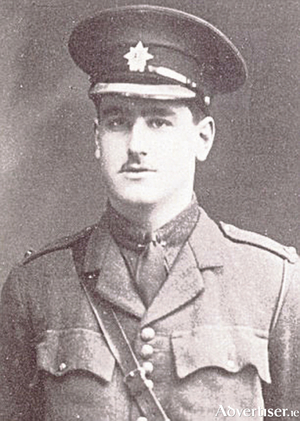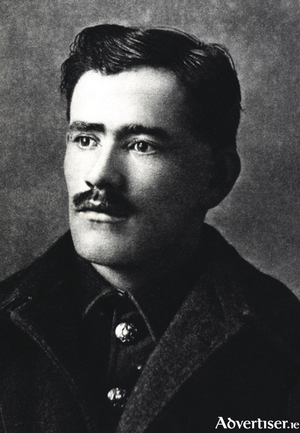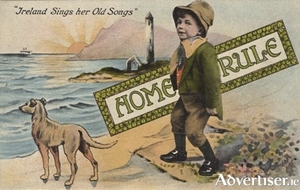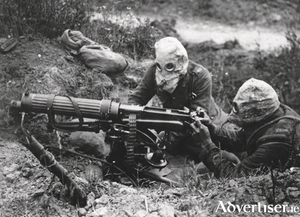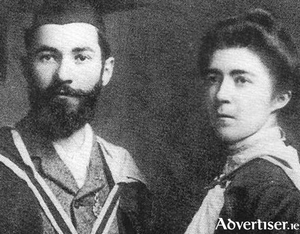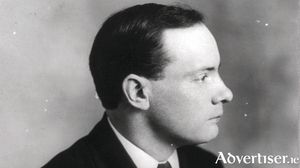The loss of the PS Connaught, flagship of the Galway Line
Thu, Sep 15, 2016
The loss of the PS Connaught, October 8 1860, launched to reverse the sliding fortunes of the J Orwell Lever’s Galway Line, was a severe blow to the company. Although the local press tried to make the most of the fact that of the 591 people on board, not one life was lost, the bad publicity soured the public towards the Galway Line, which was also in financial trouble.
Read more ...Justice at last for the Indian Empire incident?
Thu, Sep 08, 2016
Despite the excitement, the prospects, the agreement to carry mail, and new luxury ships, the Galway transatlantic adventure headed by J. Orwell Lever ended in failure within six years.
But, as Tim Collins wrote in an earlier article,* ‘as an historic failure, its record is impressive. Ultimately the Galway Line employed 16 steamers (eight paddle-powered, and eight screw-powered) which made a total of 55 return voyages across the Atlantic between 1858 and 1864. The voyages were made during winter months as well as during the calmer summer sailing season. Six ships were involved in serious accidents due to ice and fog as well as storms, while five made only one trip, or foundered on their first crossing.**
Read more ...Fr Peter Daly - ‘The warmest expression of our unbounded gratitude.’
Thu, Sep 01, 2016
Described as a ‘turbulent priest’, and ‘the dominant public figure in Galway during the 1850s’, who was ‘a stubborn, abrasive, guileful and egotistical populist,’* Fr Peter Daly was the principle mover and shaker behind Galway’s drive to become the main transatlantic port for traffic to America in the 1850s. As chairman of both the Town Commissioners and the Harbour Board, he supported J O Lever’s Galway Line, which was to run three state-of-the-art steam-sailing ships between Galway and New York, from a grandiose harbour to be built off Furbo. Passengers from Britain, and all over Ireland, would be delivered to the terminal by train. It was to be the most comfortable, and shortest, route to America.
Read more ...Did a midsummer murder silence a guilty pilot?
Wed, Aug 24, 2016
In June 1858 Galway town was in a fever of excitement. Its vision for a magnificent transatlantic port off Furbo, reaching deep into in Galway Bay, where passangers from Britain, and throughout the island of Ireland, would be brought to their emigration ship in the comfort of a train, could now be scuppered by the apparent carelessness of the two local pilots.
Read more ...Did Liverpool scuttle Galway’s Atlantic dream?
Thu, Aug 18, 2016
If Eamon Bradshaw and his crew think their courageous plan to extend Galway harbour into deep water to accommodate cruise liners is a step into modernity that will bring commercial success to the city on a grand scale, it pales almost into insignificance compared to the stunning ambitions the Galway merchants schemed in the mid 19th century.
Read more ...The west of Ireland lacks civilisation - But it has poetry
Thu, Aug 11, 2016
‘The capital, Galway, is a terrible place. It has of course St Nicholas, one of the few remaining pre-Reformation churches; the frontispiece of a Renaissance town house erected as a gateway to the public park; and a medieval fortified house about which they tell the well-known story of the Lynch who hanged his own son when the sheriff wasn't available. At least once a year while I was director of the Abbey theatre we got a play on that. From Miss Edgeworth's account of her travels to Galway it would appear that as a theme for tragedy it was popular a hundred years ago. But even before that I had a lively hatred of the town....'
Read more ...‘The old lady was a holy terror’
Wed, Aug 03, 2016
Ireland’s greatest short story writer is probably the late Frank O’Connor (1903-1966). Born in Cork city, his autobiography An Only Child (1961) is ironically a celebration of his vivacious but fastidious mother, and their survival from his alcoholic, and at times brutal, father.
O’Connor was blessed to have had a brilliant teacher, Daniel Corkery, at Cork’s renowned North Mon school, who encouraged his learning Irish and to write.
Read more ...GBC - A Galway tradition for eighty years.
Thu, Jul 28, 2016
One autumn morning in Eyre Street in 1972, school going children had a special treat. There, spread on the road, were trays of breads, cream cakes, scones and chocolate éclairs. Hardly able to believe their eyes they fell on them. With shouts of joy and laughter they stuffed their mouths and filled their pockets before running off to tell their friends to come and help themselves.
Read more ...‘Today the Somme is a peaceful but sullen place.’
Thu, Jul 21, 2016
One of the great obsessions after the war was how to come to terms with the ‘missing’ - the many thousands of young soldiers who were either vaporised, or blown to pieces, by high explosives; or were drowned and lost in the mud. Last week I tried to tell the heartbreaking search for their missing son Jack, by the Kiplings. For months they haunted hospitals, interviewed soldiers, even dropped leaflets on enemy territory, pleading for information. Even though the Somme still reveals bodies today, Jack Kipling was never found.
Read more ...‘Have you news of my boy Jack?’
Thu, Jul 14, 2016
Such were the demands on many young men, not motivated by any political ideal, or heroic pressure, to fight for their king and country in 1914, but were driven by the sense of advtenture and excitement, that war often evokes in the hearts of young men, that they queued in their thousands to answer the call to arms. If unsuccessful, due to some physical deficiency (although medical check-ups were usually just a formality), family often used its influence to gain admission to the armed forces.
Read more ...‘Too late now to retrieve a fallen dream..’
Thu, Jul 07, 2016
Apart from Irish nationalists believing that Home Rule would follow the war if they fought for Britain; or the Ulsterman's belief that after their sacrifice, Britain 'would see them right,' there were other reasons too, that drove young men into the British army at this perilous time in history. Men joined for heroic reasons. There were propaganda warnings that Irish women would be raped, land and farms confiscated, churches burnt and looted if Germany invaded Ireland as it had Belgium.
Read more ...Dying for Home Rule
Thu, Jun 30, 2016
Here are two pictures from my father’s head
–I have kept them like secrets until now:
A day talked about in sadness and horror
Thu, Jun 23, 2016
“ I feel that every step of my plan has been taken with the Divine help. The wire has never been so well cut; nor the artillery preparation so thorough….”
Read more ...‘Deep humiliation and bitterness’
Thu, Jun 16, 2016
Despite the crucial role many women played in the 1916 Rising, very few were given the credit they deserved. In fact some women were refused a pension for many years because they were not men.
On Easter Monday 1916, Brigid Lyons, a young medical student at Galway University, was at home in Longford when news came that the Volunteers had staged a rebellion in Dublin.
Read more ...Thirty years of mayhem and magic
Thu, Jun 16, 2016
MACNAS, noun: the frolic-like behaviour of a young calf let out to grass for the first time after being kept inside all winter; joyful abandonment; dalliance; wantonness.
Read more ...The woman who threw a hatchet at the prime minister
Thu, Jun 02, 2016
There was hardly a marriage of two minds greater than that between Hanna Sheehy and Francis Skeffington, who were married in Dublin in 1903, and who committed their lives to many causes, particularly feminism, pacifism, socialism, and nationalism. Hanna was one of the founders of the Irish Women’s Franchise League, determined to win votes for women. As part of its disobedience campaign, women were urged not to fill in the 1911 Census form correctly. Her husband Francis, totally supportive in all her endeavours, and as head of the household, submitted the following:
Read more ...‘Lord, thou art hard on mothers’
Thu, May 26, 2016
Where is more beautiful, Connemara or Kerry?
This question, still argued over today, occupied the Pearse children in happier days before the 1916 Rising. Padraig, who had been coming to the west since 1903, and had built a cottage at Ross Muc, said the only way to finally solve the question, was for his mother Margaret, and his two sisters, the elder, also called Margaret, and the younger girl Mary Brigid, to come to Connemara for a holiday. The two men, Padraig and his inseparable brother Willie, set out in advance to get things ready while the three women followed later.
This question, still argued over today, occupied the Pearse children in happier days before the 1916 Rising. Padraig, who had been coming to the west since 1903, and had built a cottage at Ross Muc, said the only way to finally solve the question, was for his mother Margaret, and his two sisters, the elder, also called Margaret, and the younger girl Mary Brigid, to come to Connemara for a holiday. The two men, Padraig and his inseparable brother Willie, set out in advance to get things ready while the three women followed later.
Read more ...Pearse did not want its beauty to be wasted
Thu, May 19, 2016
Reading Geraldine Plunkett’s description of a holiday she and her sister Fiona, and their brother Jack, enjoyed at Padraig Pearse’s cottage at Ros Muc in the summer of 1915, I get a glimpse of the relaxing life-style that welcomed Pearse there since he first came in 1903. In fact after Pearse wrote his famous oration, which he delivered with power and menace at O’Donovan Rossa’s funeral on June 29 1915, events swept him along to such an extent that he was never again able to visit the cottage.
Read more ...The professor in his wife’s overcoat
Thu, May 12, 2016
Tom Dillon, originally from Co Sligo, married Geraldine Plunkett, on Easter Sunday 1916. The Plunkett family were practically all committed to the Rising, and the subsequent War of Independence. Tom qualified from UCD as a chemist, worked with the Volunteers, and supplied them with a steady stream of hand grenades and bombs. In May 17 1918 he was arrested and interned with other Irish Rebels, in Gloucester prison, England.
Read more ...Families and weddings Easter 1916
Thu, May 05, 2016
Joseph Plunkett and Grace Gifford were to have a joint wedding with his sister Geraldine Plunkett and her fiancé Tom Dillon, at the Rathmines church, Easter Sunday, April 24 1916. The confusion about the on/off Rising, the rumours about the possibility of Roger Casement being taken prisoner in Kerry, kept the couples guessing as to what would happen. But Joseph, one of the principle organisers of the Rising, probably knew more that what he said to his sister, that Grace ‘did not know the smallest thing about the political situation, and had no idea whatever of such things’.*
Read more ...